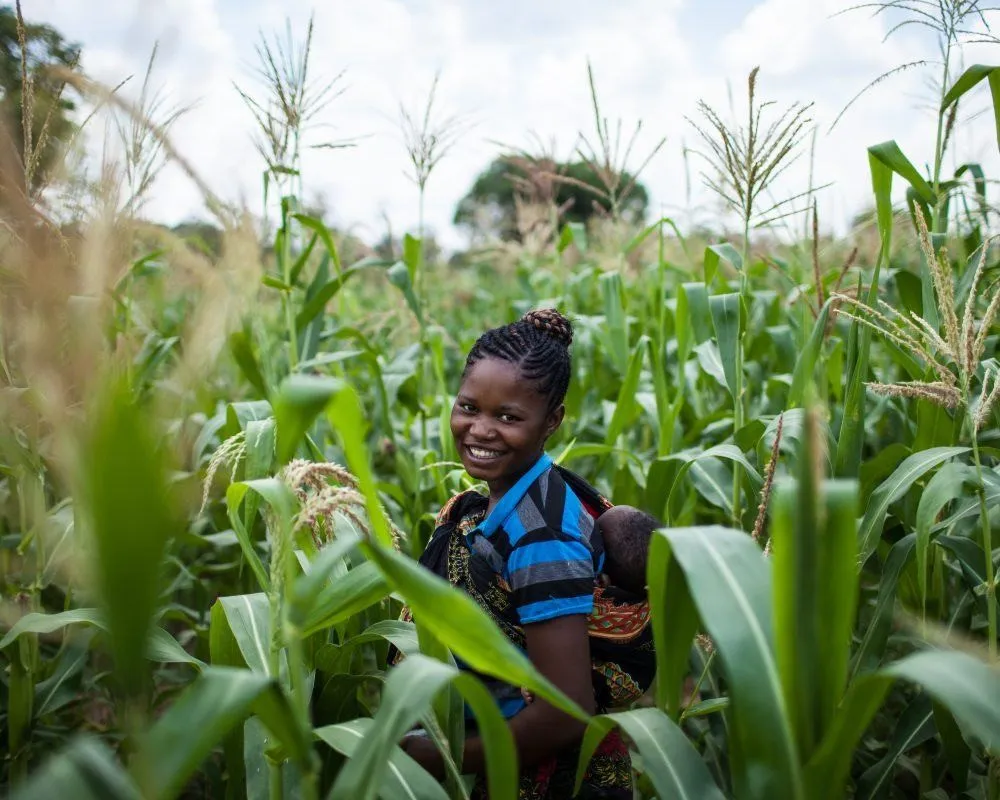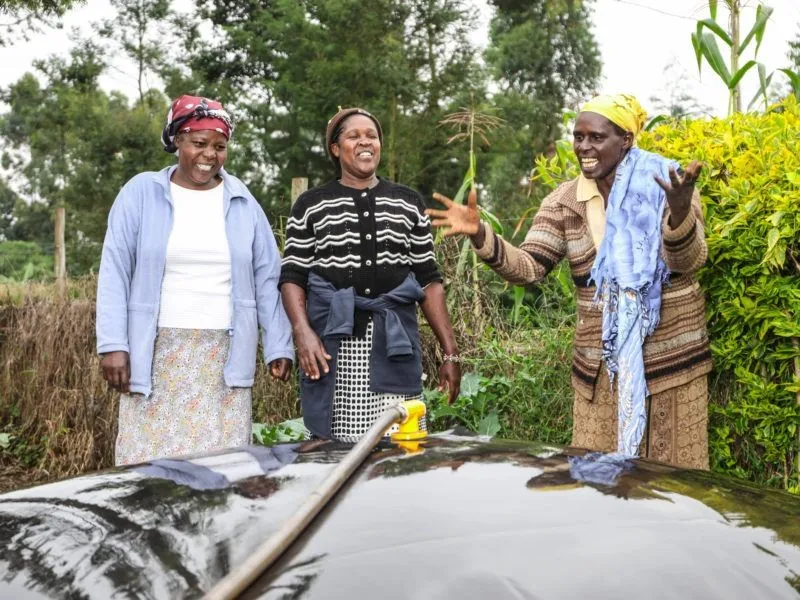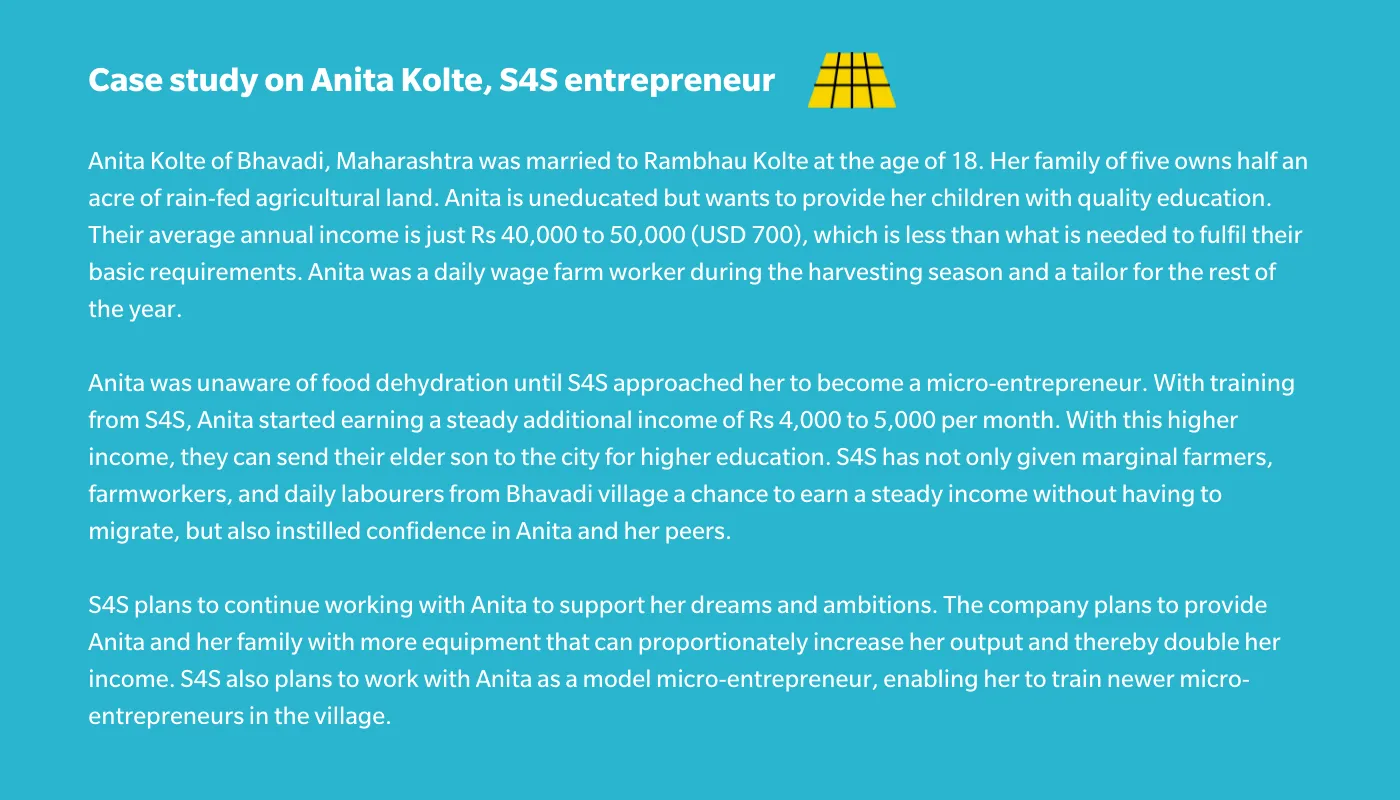Improving Livelihoods and Adapting to Climate Change by Understanding Pathway Transitions in Rural Households
We provide practical insights and recommendations to service providers, funders and policymakers that allow them to align their support to directly meet the needs and aspirations of rural households.

An interview with Tanya Kothari, CASEE Research and Advocacy Manager, Shell Foundation
By Sarah Hambly, Partnership and Communications Manager and Jasmine Brand-Williamson, Marketing Communications Executive, Energy Saving Trust, Co-Secretariat of Efficiency for Access
Since 2019, Shell Foundation has been a donor member of Efficiency for Access. Shell Foundation is a charity that supports pioneering social enterprises to alleviate poverty by improving access to energy and transport for low-income communities in Africa and Asia. The Foundation supports innovative technologies including biogas digesters that reduce greenhouse gas emissions, dehydrators for female smallholder farmers and thermal storage for cooling.
In this interview, Tanya Kothari, CASEE Research and Advocacy Manager, Shell Foundation, talks about ‘Understanding Rural Pathways Transitions’, a recent report that helps shed light on the needs of rural households in developing countries and how best to support their aspirations and inclusive economic development. She explains why young people and women should be at the centre of this development work, to create long-lasting and sustainable change in rural communities.
Could you please provide an overview of the Rural Pathways model and how the new Pathways Transition Framework presented in ‘Understanding Rural Pathways Transitions’ builds on it?
The ‘Understanding Rural Pathway Transitions’ report provides a structure to map rural households’ economic and social circumstances and provides practical insights and recommendations to service providers, funders and policymakers that allow them to align their support to directly meet the needs and aspirations of rural households. The report was developed by Shell Foundation and MasterCard Foundation’s Rural & Agricultural Finance Learning Lab (RAFLL) and co-funded by UK aid.
The research is grounded in the belief that long-term understanding of and engagement with rural households is needed for successful and inclusive rural economic development.
Rural households are central to the strategies of many global development organisations yet are too often categorised as a single uniform group. This could limit an organisations’ ability to introduce appropriate products and services that improve a household’s resilience, productivity, and income. The Rural Pathways model and the Pathways Transition Framework help organisations build a dynamic relationship with rural households to understand their different and evolving aspirations, livelihoods, and needs over an extended period.
To apply this framework in Kenya, more than 1,225 rural households were interviewed. Responses were combined with qualitative insights, providing a snapshot into four pathways that play a vital role in rural economies: the vulnerable subsistence farmer, the traditional commercialising farmer, the small to medium (SME) agribusiness owner and the micro-entrepreneur.
Different stakeholders in the development sector can apply this framework to:
- Design better research to understand what customers might need today and tomorrow to design more tailored and sequenced products and services that can help rural households progress.
- Develop stronger and more thorough impact and investment theses with long-term horizons to get a more accurate assessment of the impact-return trade-off, and how this might change over time.
- Develop more effective collaboration between actors working in the rural livelihoods sector by using a common language about target beneficiaries, pathway transitions, and how different interventions influence that journey. This will allow stakeholders to better collaborate based on aligned expectations.
In the report, you observed that your research suggested that ‘young households are more educated and digitally savvy, more interested in stable job opportunities… and generally feel more optimistic about the future compared to older households.’ Could you please explore this in more detail?
Young households represent a dominant presence among SME agribusiness owners and micro-entrepreneurs, demonstrating increased aspirations, entrepreneurship and a greater appetite to use new technologies to improve their livelihoods.
This is driven by access to education and internet usage being higher among younger people but contrasts with challenges of income levels and access to formal financing being lower.
Younger households seek and use credit more for productive assets than older households. They are around 10% more likely to take out loans for farming inputs and 5% more likely to use credit to purchase assets. However, there is a need for innovative credit providers to provide appropriate products and payment plans that reflect seasonal affordability. One example of this is Apollo Agriculture, a technology company that helps smallholder farmers in Africa to maximise their profits. Using remote sensing, data science, and agronomic machine learning, Apollo Agriculture provides farmers with appropriate finance, products and advice to help them increase their yields and incomes and ultimately climb the energy ladder.

How does climate change affect young people’s ability to make progress in their livelihood strategies?
The increasing challenges posed by climate change to agricultural households, who are often the most vulnerable of society, require holistic solutions.
The research shows that youth have a heightened awareness of climate change risks, and often feel compelled to look for opportunities to find stability and higher incomes through sustainable or full-time employment, which often means migration to urban areas.
Even for youth not pursuing agriculture as a primary livelihood opportunity, climate change creates challenges for businesses. For example, processing, input provision and other businesses are dependent on agriculture. All rural businesses are highly dependent on agricultural income due to most rural populations across Africa and India being either directly or indirectly engaged with farming.
Livelihood generating assets powered by clean energy present a unique solution to these challenges. Technologies such as solar irrigation pumps, biodigesters and cold storage are directly linked to improved incomes and job creation for rural households. These can help support climate adaptation and build resilience for rural households. Furthermore, these solutions generate no harmful emissions and provide low or no carbon rural economic development.
How can off-grid appliance manufacturers create affordable, high-performing and inclusive appliances and technologies that are powered by renewable energy sources, which can help young people in their pathway transitions and improve their livelihoods?
A great example of this is S4S Technologies (S4S), an agri-food technology company, which provides access to market linkage and decentralised solar dehydration technology to women farmers, who produce dehydrated vegetables at the farm gate and sell them to S4S.
S4S aggregates the produce, performs a thorough quality check and secondary processing at its ISO grade facility and sells the products to a range of consumers.
S4S farmers increase their income by reducing farm-level losses and creating value-added products, whilst S4S earns a margin on these unique and nutritive dehydrated products. S4S is currently earning a monthly revenue of US$ 200,000, working with over 6000 women farmers and serving over 800 customers.
In a recent learning report, ‘Implementing women-centred initiatives in India’, S4S identified the human impact of its technology and business model.

What is Shell Foundation doing broadly to help empower young people to create appliances and technologies that can help accelerate a just and inclusive clean energy transition and help vulnerable communities in developing countries adapt to climate change and build resilience?
Shell Foundation believes that a just and inclusive energy transition, one that alleviates energy poverty and mitigates against climate change, requires an understanding of the true needs of social entrepreneurs. These entrepreneurs will help drive the transition and deliver support and blended finance solutions.
Social enterprises can help deliver products and services that reach low-income consumers in a way that is affordable, sustainable and scalable. Thus, catalysing entire markets into addressing the UN Sustainable Development Goals.
We apply this thinking throughout our support of the entrepreneurial ecosystem, to determine which opportunities youth are more likely to pursue in emerging economies, and through direct support to social enterprises and partnership programmes with several international development organisations.
Examples of the enterprises that Shell Foundation supports includes S4S, as well as:
- Sistema.Bio, which produces high-quality, reliable biogas digesters that convert farm waste into energy suitable for cooking, heating or powering machinery and reduces greenhouse gas emissions from livestock.
- SunCulture, which provides smallholder farmers in East Africa with solar technology, financing and training to make their farms ‘smart’ and more productive.
- Inficold, which has developed a new thermal storage technology that can enable uninterrupted cooling where grid electricity supply is unreliable.
Shell Foundation has partnerships focused on catalysing agricultural solutions to energy access and gender inclusivity in the social investing sector, and workstreams looking specifically at promoting local entrepreneurship in energy, mobility and agriculture in Africa, and innovative financing initiatives including the recently launched ‘India Covid response Fund for Agriculture Transition’ and the Energy Entrepreneurs Growth Fund.
All of Shell Foundation’s work and programmes generate insights that are shared on this website.
For the month of September, Efficiency for Access’ ‘Solar Appliances for Our Planet’ campaign is focusing on empowering youth. Learn more here.